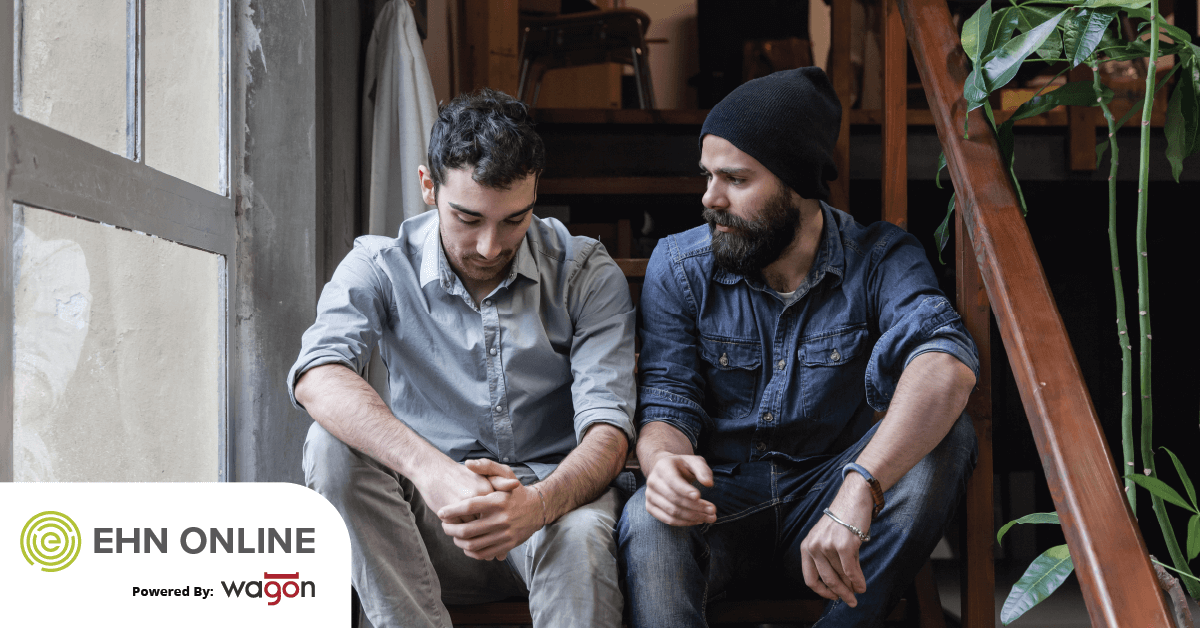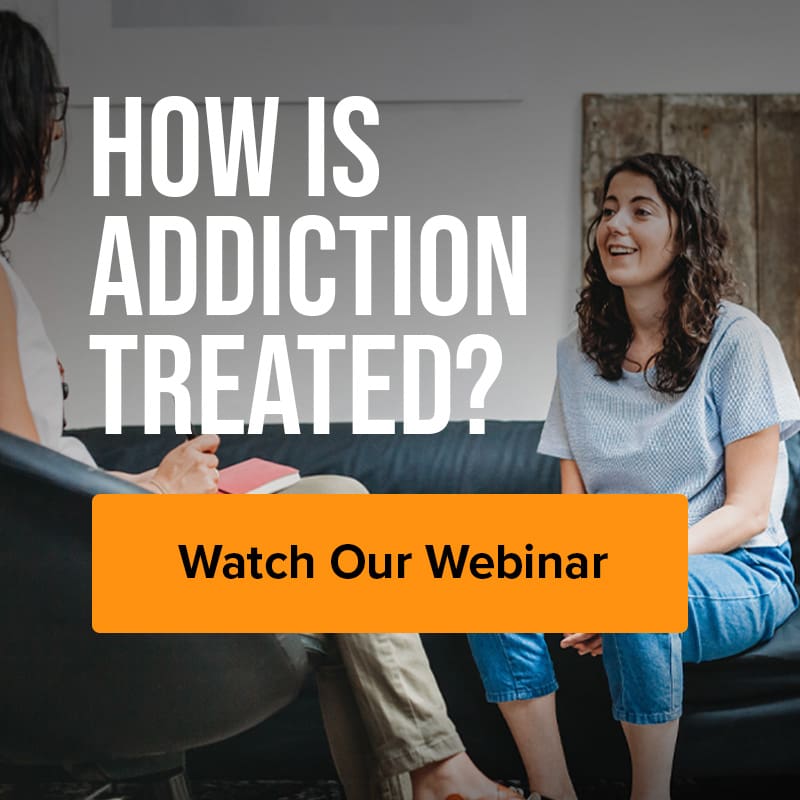If you’ve ever watched a loved one struggle with an addiction, you know it can be a heart wrenching, isolating, and frustrating experience.
There are many different ways to support a loved one going through an addiction, but how do we know if we’re — consciously or not — enabling their behaviour? If we know the traits of an enabler, we can stop our behaviour in its tracks and better empower our family or friends to seek life-saving treatment or harm reduction services.
What is enabling?
Simply put, “enabling” means to contribute to or support someone’s self-destructive behaviour. According to the American Psychological Association, an enabler is typically an intimate partner or good friend who passively permits or unwittingly encourages this behaviour in the other person; often, the enabler is aware of the destructiveness of the person’s behaviour but feels powerless to prevent it.”
It’s important to remember that while there is often a negative stigma attached to the term, we’re most likely not acting maliciously or trying to do any harm as enablers. Most people are trying to be loving and supportive, but just don’t know how. That said, if we can be conscious of our enabling, we are in a better position to help our loved ones recover by empowering them to change.
What does enabling an addiction look like?
When it comes to addiction or substance use disorders, like alcoholism, there’s more to being an enabler than actively encouraging or participating in the behaviour. Here are some examples of enabling that are a bit more subtle:
Making excuses
When we love someone, it’s easy to make excuses for all sorts of negative, self-sabotaging behaviour. But when it comes to substance use, the stakes can be high. This might look like telling other friends or family that someone’s addiction “isn’t that bad,” or excusing it altogether.
This is tempting and can seem innocent, but it shields the person from the real consequences of their actions.
Bailing them out
Addiction can impact every aspect of a person’s life, making it difficult to keep up with important commitments or obligations. In more severe cases, they can fall into financial or legal trouble.
Family and friends help each other out in the toughest of times. So, if we have the means to pay legal fees, repay debts, or loan money to someone in a bind, we often feel like this is the right thing to do. While it is kind and understandable to want to make someone’s life a little bit easier, this can actually encourage their addiction.
For someone trying to recover from an addiction, knowing they have people in their corner can make all the difference. But financially supporting their habits might give them a false sense of security and delay the realization that their substance use has become a serious problem.
Blaming others
We know that addiction isn’t a “choice” and that there are several biological and social factors that make some people more vulnerable. That said, when a loved one is struggling with addiction, it isn’t productive to blame other people for their actions.
It’s easy to place blame on a friend who actively encourages or joins in on their substance use, the strict boss, the spouse or partner that broke their heart, our ourselves. But it’s important to remember that this doesn’t help.
There will be people that are objectively toxic for someone who is trying to recover from addiction — but blaming these people for the addiction itself takes away the addicted person’s agency and teaches them that they are not self-sufficient.
Covering up or lying
If someone you care about is constantly forgetting or skipping important commitments, you might find yourself lying to others on their behalf. While this might seem helpful, or like you’re saving the person some embarrassment or stress, it is not recommended. By hiding your loved one’s addiction, you’re making it less likely they will be held accountable. In order to seek treatment, someone must fully understand the consequences of their substance use issues. It might seem harsh to not cover up for someone you love, but doing so is ultimately counterproductive.
How can I help?
Addiction recovery is a group effort
A strong support system can make a huge difference in someone’s recovery. Here are some steps you can take to help someone in your family who is showing signs of an addiction or substance use disorder:
- Educate yourself. There is plenty of stigma and misunderstanding surrounding addiction and mental illness. Having a better understanding of what your loved one is experiencing physically and mentally will foster empathy and open dialogue. In fact, your loved one might not fully realize that they have an addiction.
- Express your concerns. If you have an intimate relationship with a person struggling with addiction, you are likely the best person to start this conversation. You don’t have to be an expert, but it is important to tell your loved one how much you care and that they have your support.
- Support yourself. Supporting a loved one with an addiction can be extremely draining – you don’t have to do it alone. Consider joining a loved one support group like Al-Anon and sharing your experiences in a safe environment. Check to see if your loved one’s treatment program includes family support or therapy.
- Research treatment options. Certified clinics offer outpatient or inpatient (live-in) treatment options and a variety of different therapies. Whichever facility you choose, make sure the clinicians are accredited and registered with their relevant professional college.
Resources to help you:
Info-Social 811
811
ParentsLine
1-800-361-5085
Wellness Space Canada
1-888-417-2074
Al-Anon
Support group for relatives
A Team That Supports Your Recovery Goals
At EHN Canada and EHN Online, we believe that all families impacted by addiction deserve support. Those who participate in our programs can invite loved ones to join monthly online Family Education Workshops and continuing care groups. In these workshops, friends and family can learn to assist their loved ones as they integrate recovery skills into daily life, as well as receive education on how to maintain their own wellbeing along the way. In addition, Family Aftercare is a weekly group offered virtually for family members.
We make the process of getting the qualified help you need easy. Give us a call to learn more about our services and how we can support you on your journey to recovery. With facilities online and across Canada, we can find a program that’s right for you.
Bellwood (Toronto, ON): 1-800-387-6198
Edgewood (Vancouver Island, BC): 1‑800‑683‑0111
Ledgehill (Lawrencetown, NS): 1-800-676-3393
Sandstone (Calgary, AB): 1-587-350-6818
Gateway (Peterborough, Ontario): 1-705-535-0636
Nouveau Depart (Montreal, Quebec): 1-888-488-2611
EHN Online: 1-888-767-3711
Or contact us by email.
After finding the right program, you can get started on your recovery, supported by EHN Canada, a recognized leader in addiction and mental health services. Wherever your symptoms fall, we can help you find a new and better place to thrive.
Sources
APA Dictionary of Psychology – Enabling. (2020). American Psychological Association. https://dictionary.apa.org/enabling.
Juergens, J., & Hampton, D. (2021, May 6). What Is an Enabler? – Stop Enabling Today. Addiction Center. https://www.addictioncenter.com/treatment/stage-intervention/what-is-an-enabler/




